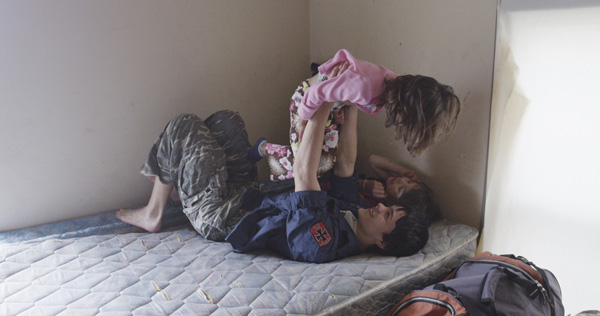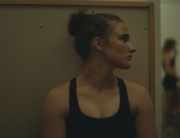While watching this film, I thought back to the times that I discussed the topic of poverty in America with my students in government class. It never ceased to amaze me that many of these college students had no idea that there were poor people in this country. They had no clue about childhood hunger and the lack of adequate medical care. To them, those were conditions found in “Third World” countries or characteristics of lazy people. Needless to say, my job to teach and inform these students was not an easy one. If I were still in the classroom, I would show them this film.
Directors Tracy Droz Tragos and Andrew Droz Palermo follow three teenagers over the course of a year and chronicle their responses to challenges faced at home and at school. The students reside in Rich Hill, Missouri, a town 70 miles south of Kansas City. It was once home to a thriving coal mining industry, but now its economy has gone bust. The town’s future is bleak.
The boys face a plethora of trials, many of which can be traced to poverty. Andrew lives with both parents and his twin sister. His father has difficulty finding and keeping a job as a handyman, and as a result, the family frequently moves from town to town. Viewers will be struck by Andrew’s abiding faith and the belief that one day his prayers for a better life will be answered. At one point, he comments that God is busy right now helping other people, but Andrew hopes his time will come soon.
Harley lives with his grandmother because his mother is in prison for attempted murder. He struggles in school and is often truant. Appachey is an angry 12-year-old who lives with his mother and sisters. His mother states that Appachey has ADHD and doesn’t take his medication. Like Harley and Andrew, Appachey lacks focused supervision and direction from adults.
The film is cinema verité at its finest. With long tracking shots of the abandoned streets, many filmed at night, viewers feel the despair that permeates the town. The camera is unobtrusive in the homes of the three boys, and they seem oblivious to its every recording of their smoking, rants of foul language, or shabbiness of their surroundings. At the end, nothing much changes for the boys. Andrew is still hopeful, Harley still struggles in school, and Appachey’s discontent and anger land him in a juvenile detention center.
Rich Hill truly is observational cinema. It exposes a serious problem and is non-judgmental in its presentation. I kept thinking that this is the cinema version of Jacob Riis’ book How the Other Half Lives for exposing issues in our country that some people say are hiding in plain sight. Rich Hill will haunt you.

















Leave A Comment